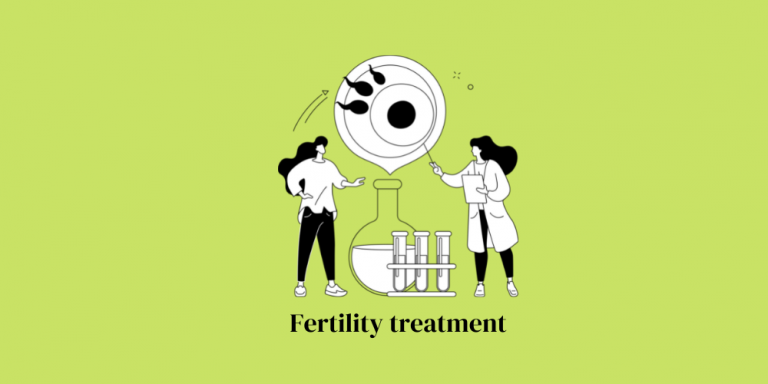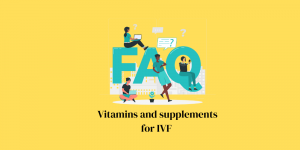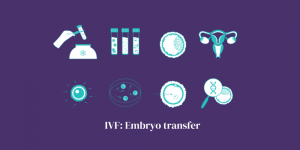Each country offers something slightly different for IVF patients, ranging from treatment designed to be convenient and affordable to “high-end”, advanced IVF packages. The UK fertility sector prides itself on delivering high quality treatment and safe care. All UK IVF clinics are monitored by an independent regulator, (the Human Fertilisation and Embryology Authority, or HFEA). That means everyone who steps into a UK fertility clinic can be assured of receiving the right treatment for them. The HFEA ensures quality standards remain high by regularly auditing all UK-based IVF clinics. That way, only clinics which maintain world-class IVF care can operate in the UK.
The start of your journey
When setting out on their IVF journey, many patients ask themselves four key questions about potential IVF clinics:
- Do they offer what I want – high calibre doctors and world-class technology to treat my specific medical needs?
- Can I place my trust in the clinic to deliver what they promise – what assurance and confidence can they provide to me?
- Are their success rates genuine and realistic?
- Will they provide fair and transparent price details for their services?
In the UK, the combination of world-class doctors and specialists, technology innovation and robust regulation means that these key questions can be answered.
High calibre doctors and leading technology
As the birthplace of IVF, the UK has 40 years of experience in helping aspiring parents achieve their dream of having their own healthy child. Since Louise Brown (the first IVF baby) was born in the UK 40 years ago, the UK has continued to pioneer IVF techniques, with advancements such as genetic testing and embryo freezing.
The UK remains at the forefront of advanced IVF technology, with thousands of patients from the US, EU and Asia visiting the UK to take advantage of its:
- Leading IVF technology (in particular, for older patients or those with complicated medical issues);
- World-class safety record; and
- Expertise in and accessibility to donor eggs and sperm technologies.
Assurance and confidence
Going through IVF can be a very stressful and uncertain time. It’s therefore important to have complete confidence in the treatments carried out by your IVF clinic. Since all UK IVF clinics are independently regulated by law, clinics must put the patient’s best interests (not profits) first. Therefore, only clinics that stay within these rules and maintain the highest standards can keep their IVF licence. Patients therefore can have 100% confidence that the IVF success rates provided by the clinics are genuine.
Most other countries, like the US, don’t have laws that govern IVF, but offer voluntary bodies that provide IVF guidance. However, these bodies do not have any power, and are not able to penalise clinics that don’t follow their guidelines. For example, there are lots of media reports of US clinics transferring a high number of embryos into patients, potentially impacting the patient’s health, and the long-term health of a child. In addition, some US clinics don’t include failed IVF cycles that are stopped early in their overall success rate figures, therefore inflating their IVF success rates. Marcy Darnovsky, executive director of the non-profit Centre for Genetics and Society, noted that America’s lack of IVF regulation meant it was too often “the Wild West of the global fertility industry”.
Price
The prices in UK IVF clinics are 3 times cheaper than that of the cost of IVF in America, and are often comparable (if not cheaper) than those in Thailand.
The Overall Picture
Although competitive pricing is important, most patients will select an IVF clinic which gives them the highest likelihood of success first time, rather than having to complete 3-4 (individually cheaper) IVF cycles.
The table below summarises some the key differences between the UK and US IVF markets.
| UK | US | |
| Is the IVF Market regulated | The UK’s IVF sector is fully regulated and every clinic is audited by the UK Government’s independent regulator, the HFEA. | No federal law governs the practice of IVF clinics in America.Some clinics however join the Society for Assisted Reproductive Technology, (SART) which provides guidance and voluntary oversight. Doctors, however, are not obliged to follow SART’s recommendations (SART does not penalise IVF clinics that violate its guidelines. |
| Minimum physical requirements for an IVF clinic | HFEA issues a three year license and conducts regular audits and checks to ensure the highest levels of treatment and safety is adhered to. | SART monitors member clinics for adherence of agreed standards guidelines. Several clinics will look for external accreditation to demonstrate their standards. |
| Guidance on transfer of multiple embryos (patient protection) | Prioritises single birth, as this greatly reduces the chance of miscarriage and mother/ baby health issues. | No regulatory laws or guidelines concerning number of embryo transfers.
Some clinics will transfer 4-5 embryos, aborting embryos, if necessary, if too many to implant (this increases the overall risk of miscarriage). |
| Reliability of IVF success rate | Independently audited to ensure consistency and reliability e.g. UK uses live birth rate, rather than easier IVF success metrics (the difference between chemical pregnancy (often cited in Thailand) and live birth (the UK metric) can be more than 20%. | Mixed; some clinics will seek external validation of success rates, however there is inconsistency – clinics often cite different success rates on their website. This makes genuine comparison of IVF clinics very difficult. |
IVF cost comparisons
| UK | US | |
| Cities/States | London | California and Massachusetts |
| IVF (per cycle) including egg retrieval | $10,000 – $15,000
(with medication and genetic testing) |
$20,000 – $30,000
(with medication and genetic testing) |
| Screening Costs (Initials tests, consultations and scans) | Less than $2,000 | $4,600 |
| Egg Donor Matching, Egg collection, compensation | $2,000 | $13,000 |
| Pre-implantation genetic diagnosis | $5,000 | $6,000-$10,000 |
| Sperm freezing (per year) | $400 | $600 |
| Embryo freezing (per year) | $200 | $600 |
| Egg freezing (per cycle) | $5,000 to $7,000 | Average $15,000 |
| Frozen Embryo transfer (per attempt) | $1,500 | $4,000 – $8,500 |
| Medications | $1,000 – 2,500 | $3,000 – $5,000 |















